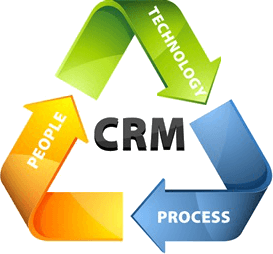Many companies still rely on obsolete methods of managing their customer information. They use unorganized spreadsheets or even worse, they rely on their contacts they keep stored in their email software. If you and your staff are relying on these methods, it is time to consider a CRM (customer relationship management) solution.
Custom CRM solutions are more than just software.
They allow you to identify your customer’s needs and wants, where they are in the sales process, as well as helping to provide excellent customer support. CRM can also help you and your staff streamline sales, support, and marketing processes. Below are a few signs that your business is in need of a CRM solution.
Multiple Employees Speak with Your Customers
Chances are you have more than one employee who interacts with your customers. A fast way to annoy your customers is by having them explain their issue from the beginning each time they have to speak with a different person. Without a CRM, it is difficult for each employee to know what has already been addressed with the customer. With a CRM, your staff has access to the customer’s history, from their first interaction to their latest one.
There are Multiple Spreadsheets for Storing Customer Information
Spreadsheets are useful for organizing and storing data. However, they can get out of hand quickly when numerous people are editing the same spreadsheet. Not only that, what happens when your employees begin creating new spreadsheets for themselves that contains important client information? A CRM provides one central location for employees to update customer accounts.
Employees are Leaving and Customer’s are Left Hanging
Employee turnover happens for every business and it is devastating to lose sales and/or support representatives. They are often your customer’s primary point of contact. Once an employee leaves the company, it is difficult for their replacement to develop relationships with customers and prospects without important customer information. What happens if these details are in spreadsheets that cannot be located? A CRM keeps customer data in one place and the data is seamlessly transferred from one employee to another.
A custom CRM solution is an ideal choice for any business in order to develop better customer relationships. You and your employees are able to stay organized and focused on generating more sales. Your customers receive improved customer service and will continue to use your services.


